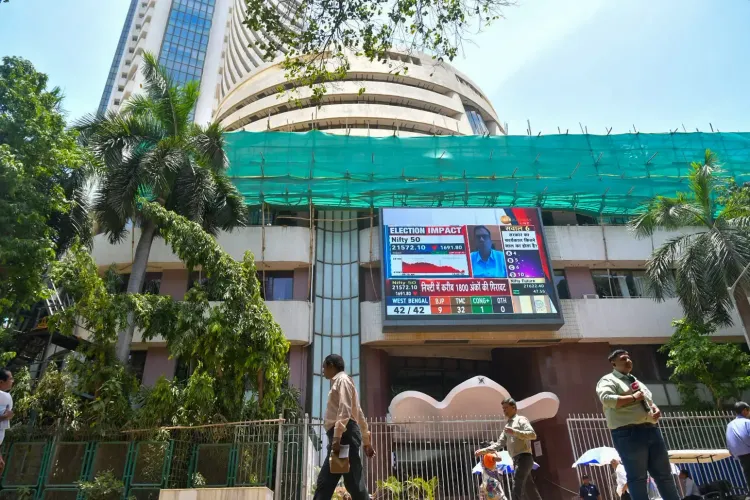Why Did Sensex and Nifty Drop in Early Trading?

Synopsis
Key Takeaways
- Indian stock markets opened lower due to global economic pressures.
- Sensex and Nifty both experienced significant declines.
- All sector indices were trading in negative territory.
- Geopolitical tensions are influencing investor sentiment.
- FIIs continue to support the market despite external challenges.
Mumbai, Oct 13 (NationPress) The Indian stock markets commenced the week on a negative note this Monday, reflecting a downturn in Asian markets following a warning from US President Donald Trump regarding “stricter” tariffs on China. The overall cautious sentiment in the global arena impacted domestic equities, resulting in widespread selling across various sectors.
At the start of trading, the Sensex was at 82,278, down by 223 points or 0.27 percent, while the Nifty began at 25,180, declining by 105 points or 0.42 percent.
Experts commenting on the Nifty forecast indicated, “We will limit our upside objective to 25460, as maintained last week. Volatility is anticipated to rise as the week unfolds.”
They further noted, “The nearest support is identified at 25230/15, and we will monitor for a direct fall past 25113 before considering a shift away from upside strategies.”
As the day progressed, selling pressure escalated. By approximately 9:34 am, the Sensex was trading at 82,077.94, down by 422.88 points or 0.51 percent, while the Nifty decreased by 121.85 points or 0.48 percent to 25,163.50.
The broader markets also experienced a downturn, with the Nifty MidCap index and the Nifty SmallCap index falling by 0.5 percent and 0.64 percent, respectively.
All sector indices were in decline, with the Nifty IT index witnessing the most significant drop of 0.9 percent, followed closely by the Nifty Metal index, which fell by 0.69 percent.
Market analysts attributed the declines to escalating geopolitical tensions and uncertainty surrounding US-China trade relations, which have adversely affected global investor sentiment.
In India, however, consistent buying by Foreign Institutional Investors (FIIs) has brought some stability to the market, with purchases totaling Rs 3,289 crores over the past four trading days.
Experts suggested that the uptrend in the market has led to short covering, contributing to market resilience. “Domestic consumption themes unaffected by trade tensions are likely to see accumulation from institutional buyers,” they advised.









